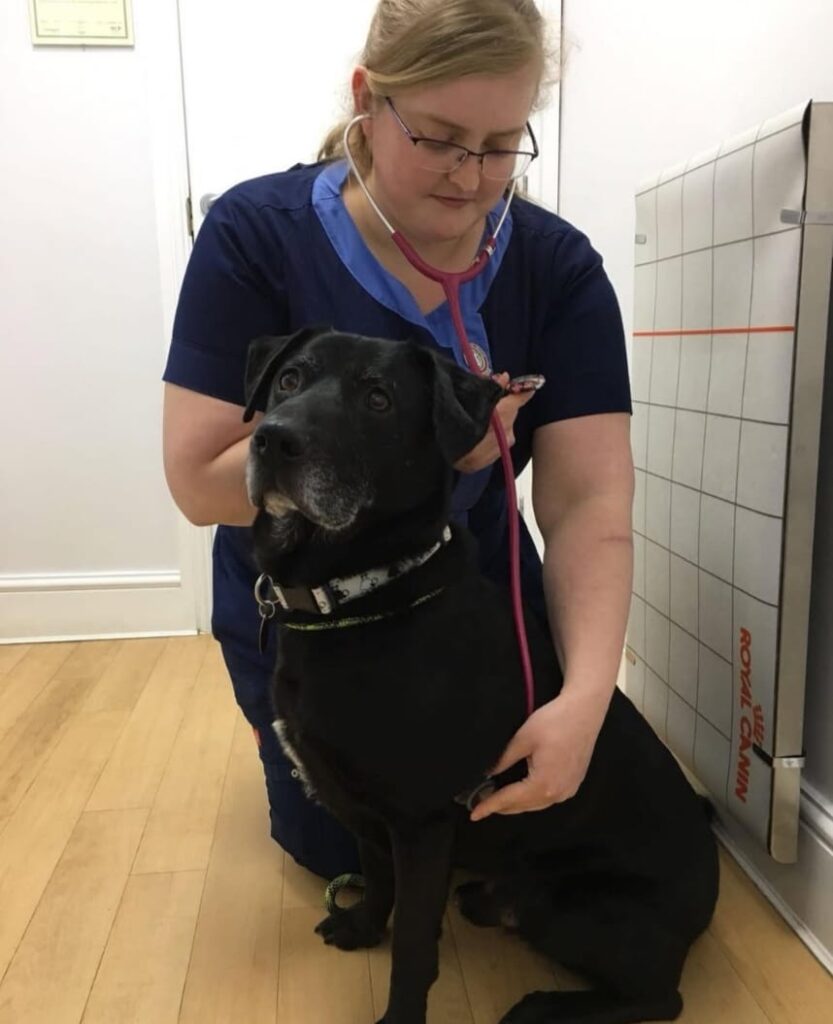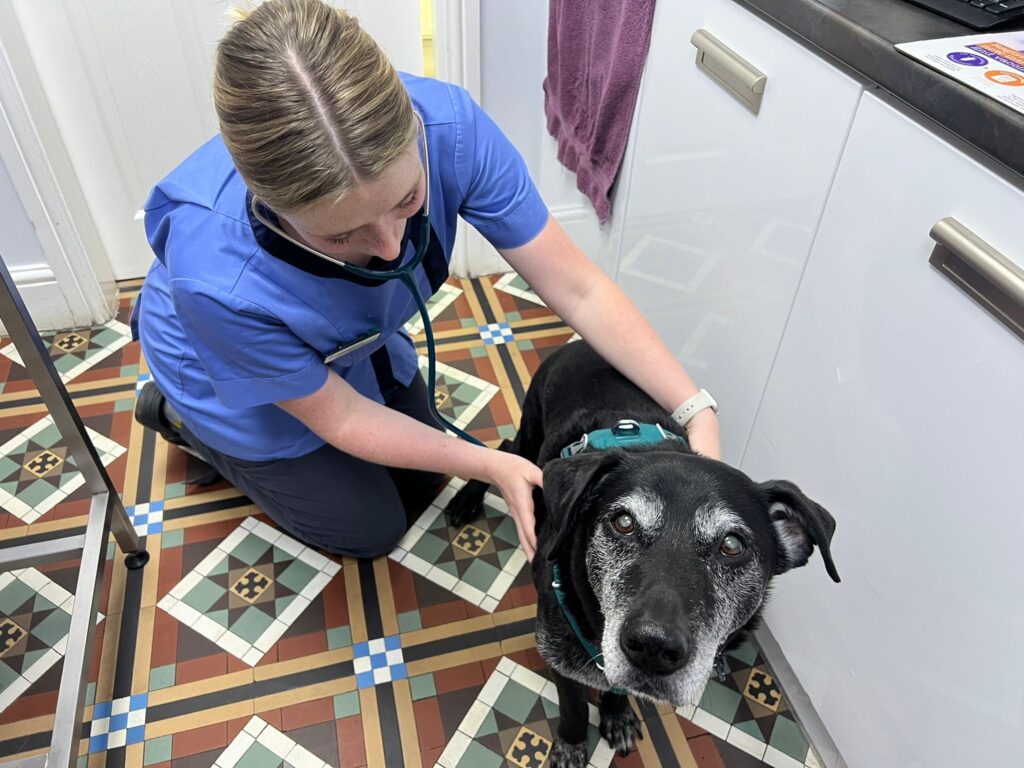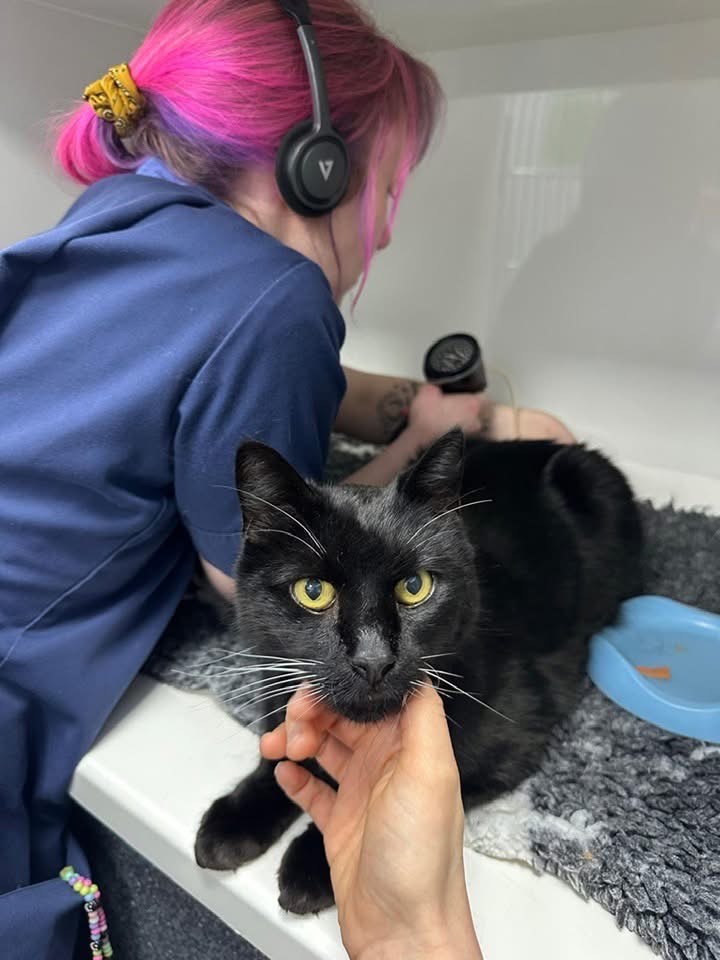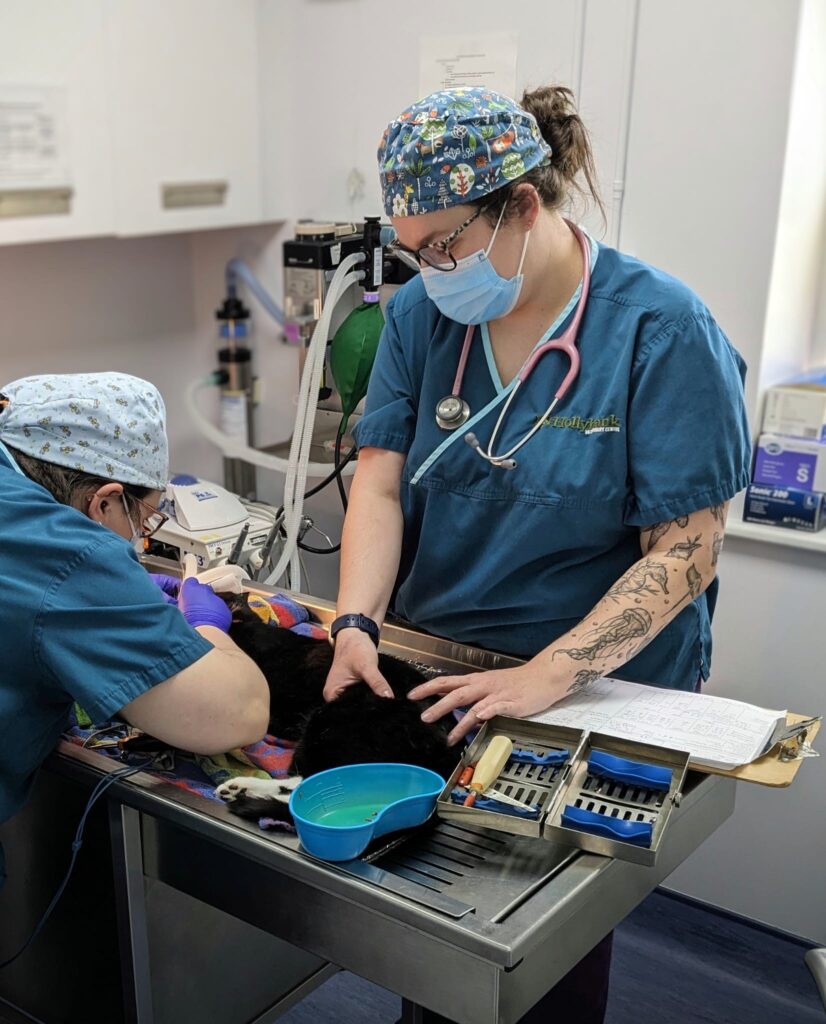Aimee has been an RVN at Hollybank since 2015 and holds a certificate in emergency and critical care. Aimee is Amy’s clinical coach, and has guided her through nearly a year of her teaching. Amy is an SVN and will be training with us until July, when the next group of students will come and the teaching starts all over again!
Aimee
As a clinical coach I oversee the training of student veterinary nurses (SVN) whilst they are on their placement year with us here at Hollybank. I am responsible for an SVN and I oversee their training including demonstrating how to perform tasks and ultimately determining whether they are competent in this area.
We do this using the Nursing Progress Log (NPL) where students need to record experiences they have had across a wide range of tasks which includes communication, handling, infection control, laboratory techniques, diagnostic imaging and anaesthesia. Once the student feels they have shown themselves to be competent, I then assess their experiences and observe them performing the task to decide whether I agree.
We have regular tutorials during which time we can work on areas the student may be struggling in, and make a plan going forwards for which tasks they should work on next. We update the other clinical coaches with the areas the student may need assistance with so that as a team we are able to support the students as much as possible.
I enjoy being a clinical coach because I like seeing the students progress from the start of their placements where they are new and just beginning their practical learning to when they have finished their NPL and they are ready to do their final part of university before becoming fully fledged RVNs. I find it very rewarding, and I found that my own confidence and skills in my role as an RVN improved when I took on the role of clinical coach in 2017.
Amy
Since last July, I have been on my sandwich year placement as a student veterinary nurse with Harper Adams University. From starting my placement in July 2024 I feel I have progressed hugely, not only with my nursing skills, but also my own confidence has grown exponentially.
I am currently nearing the end of my placement and completing my Nursing Progress Log (NPL) to track SVN’s learning and self-progression. Upon the beginning of my placement, the thought of only having a year to complete the 78 tasks on the NPL was extremely daunting and many times, I doubted my capabilities as to whether I would be able to perform some of the tasks (particularly consults and anaesthetics). However, with the support of the whole of the Hollybank team; and in particular my clinical coach Aimee who has been there to support and guide me the whole way through via encouragement and regular tutorial sessions, I am nearing that 100% completion required.
The NPL also allows regular self-progression reflection tasks allowing you to evaluate your strengths and weaknesses. Looking back from my initial assessment, I can already see how far I have progressed in my clinical abilities and my confidence- towards clients, the rest of the team, and in myself. My confidence continues to grow each day and I now love carrying out consultations and meeting clients and their adorable pets!
Whilst I still have a lot to learn and I love the industry I work in, I am excited to see my progression continue in the years to come when I qualify as an RVN.









